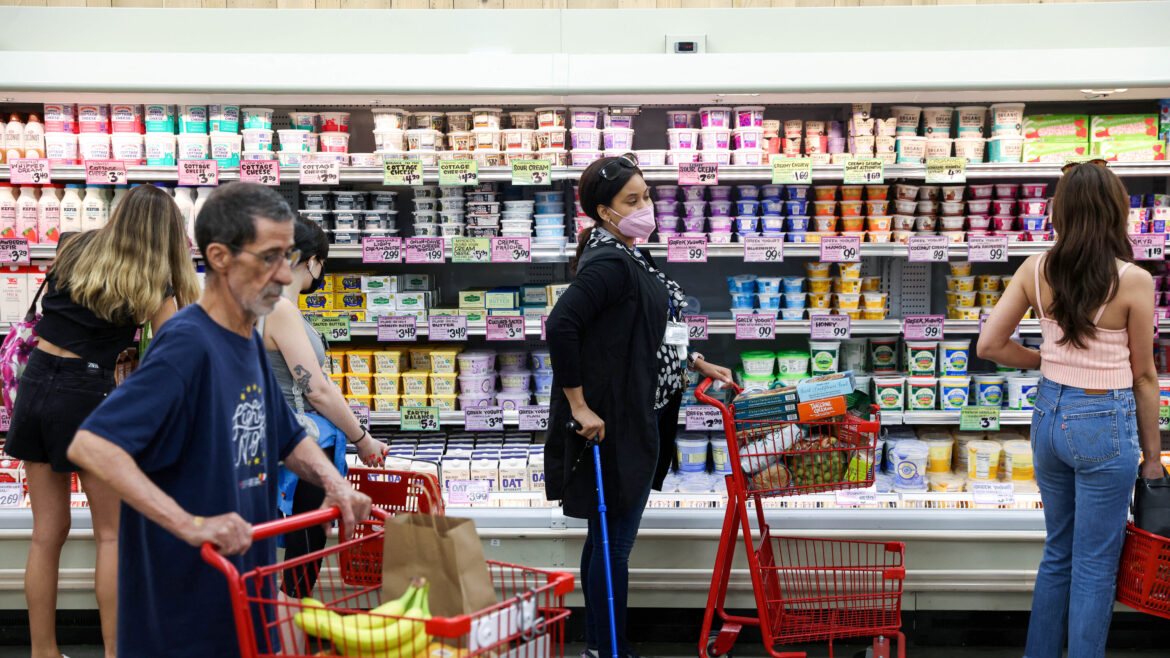At a time when energy prices, especially natural gas and electricity, continue to decline, the value of food continues to rise in Europe and the UK, prompting politicians in the governments of some countries to try to impose price caps on foodstuffs.
Despite the decrease in the cost of production as a result of the decline in the value of energy products, food prices have not stopped rising.
British Treasury Secretary Jeremy Hunt is holding a meeting with food processing companies to pressure them to stop raising prices and reduce the burden on British families.
Hunt held a meeting earlier this month with a chain of major retail stores in the country for the same purpose, and he will also meet at a later time with the Markets and Competition Authority, which is examining the food pricing file as part of the grocery sector review project that the Authority started earlier this year.
The markets are looking forward to the release of official British inflation figures tomorrow, which analysts estimate will indicate a decrease in the inflation index in general from 10.1 percent to 8.4 percent, due to the significant decline in energy prices.
Food prices in Britain have skyrocketed over the course of a year to 19.1 percent, and all estimates indicate that they will continue to rise further, despite the decrease in the cost of production inputs.
British MPs had accused supermarkets, grocery dealers and food manufacturers of deliberately « profiting » and exploiting the situation to increase the margin of intake despite low transport prices and raw materials, and it had become common to describe « greed inflation » as such practices pushing rates higher as a result of the exploitation of companies and shops.
The Central Bank of England, however, disagrees with that view, bearing in mind that the profit margin of companies outside the energy sector remains at its lowest level of GDP since 2009.
However, the British government rejects the idea of setting the price cap as some European countries have done or even following the French experience whose government has reached an agreement with the chain of assignors that makes the latter to set an optional price cap on certain bases.
ut the countries of Central and Eastern Europe, whose citizens suffer from inflation, have tended to impose a price cap on foodstuffs in order to protect the hardest-suffering families.
for the first time in half a century that European countries have imposed a price cap and intervened in the free market for goods, Although prices rose in Europe by 16.6 percent in the year ending last month, « At lower rates than Britain, » at a time when the overall inflation index rose 8.1 percent.
Some of the materials that witnessed a skyrocketing price increase are those basic materials that families depend on for their daily food, as sugar prices increased by 54.9%, the value of milk increased by 25%, and the price of eggs by 22.7%, and this is what made countries such as Hungary and Croatia move towards imposing a price ceiling on prices Some foodstuffs. As for Greece, its government is heading towards imposing a ceiling on the profit margin of stores on foodstuffs and essential commodities.
Pressure on governments, particularly in European countries, to intervene to rein in price rises is increasing, and the attitude of many who embrace the idea of greedy inflation is justified by the fact that energy prices have fallen sharply in recent months, making the increase in food prices only an increase in manufacturers’ profit margins and retail stores.
Not only energy prices that have declined, but also production inputs for all industries. The United Nations food index decreased last April at an annual rate of 19.7%.
Nevertheless, manufacturers and traders insist that they are not the cause of this rise for consumers and that they have not increased the profit margin, blaming the still high inflation rates for the overall economy.


